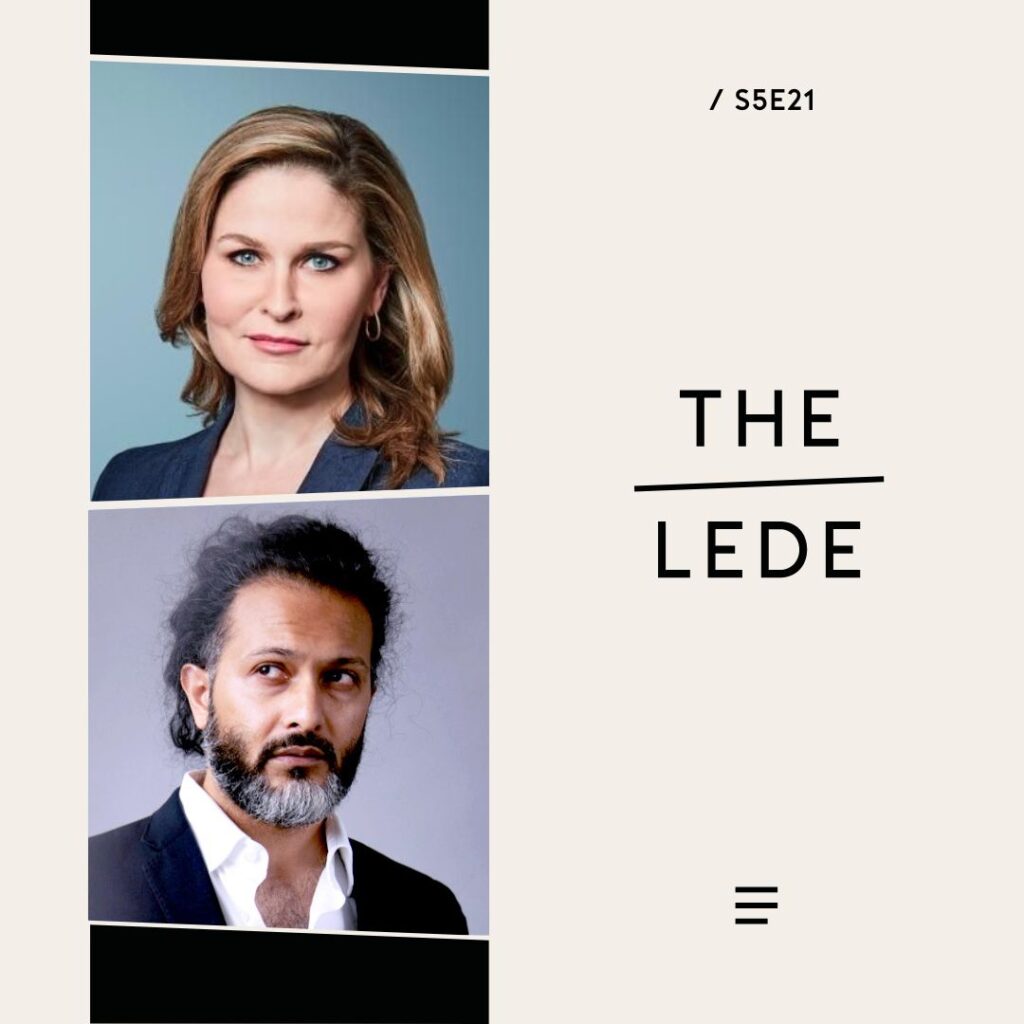Hosted by Faisal Al Yafai
Featuring Hala Gorani
Produced by Finbar Anderson, Mikey Andreasson and Mindi Roscoe
Listen to and follow The Lede
Apple Podcasts | Spotify | Podbean
Hala Gorani no longer struggles over her relationship to her Arab identity, she tells New Lines’ Faisal Al Yafai on The Lede. It was the writing of the veteran correspondent’s new memoir, “But You Don’t Look Arab: And Other Tales of Unbelonging,” that helped her to realize she had come to terms with that aspect of her background.
“It’s an acceptance that this is a facet of my personality that I genuinely love and that I’m proud of, even though it’s weird to say that you’re proud of being something that you’re born with,” she tells Al Yafai. “I haven’t done anything to achieve some Arab status, but I just think I’m happy with who I am now, every facet of it, and I’m not afraid to say that I’m happy being who I am. And that’s really very freeing.”
Gorani’s current sense of peace with her identity has been achieved despite a physical separation from her parents’ homeland.
“My ability to connect with that part of my identity has been taken away from me,” Gorani says. “And so therefore, in some ways I have to recompose, reconstitute who I am as a person, rethink myself as a new person born from what has been broken with the Syrian war.”
Gorani has not always been able to say she is happy in herself. She discusses with Al Yafai some of the anecdotes from her book, in which she describes the struggles of a young girl from an immigrant background growing up in France and the United States.
Al Yafai asks whether such experiences “are built into the fabric of being an immigrant.”
“Absolutely,” responds Gorani. “Whether it’s Hispanics, or people who come from North Africa in France … they will tell stories of feeling like outsiders.”
“Up until a certain time in my life, it was almost hurtful to always be asked, ‘Where are you from? Why do you look like that? What religion are you?’ I just wanted to be left alone. I just wanted to fit in.”

That immigrant background certainly sat uneasily with Gorani herself. “Up until a certain time in my life, it was almost hurtful to always be asked, ‘Where are you from? Why do you look like that? What religion are you?’ I just wanted to be left alone. I just wanted to fit in,” Gorani says.
She has more recently come to realize that those parts of her identity that caused her so much distress as a child are a key part of what made her a successful reporter. “That’s why diversity in newsrooms and diversity among journalists is so important,” she says. “There’s a level of understanding that I have that will be different.”
Ultimately, Gorani looks back on her journey so far with happiness. “It’s one that ends well, and that’s a message I want to send to anybody who maybe still is in the throes of not being too sure where they fit in,” she says.


